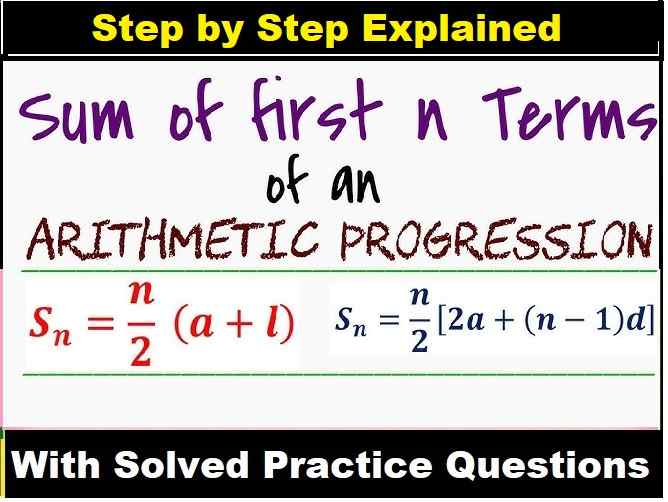Strange Meeting Long Answer Workbook Questions ISC English Rhapsody Solutions. Ch-5 Strange Meeting composed by Wilfred Owen. Extra Long Answer questions are also added for complete practice. Visit official website CISCE for detail information about ISC Board Class-11 English.

Strange Meeting Long Answer Workbook Questions ISC English Rhapsody Solutions
| Board | ISC |
| Publisher | Evergreen Publications |
| Subject | English |
| Class | 11 |
| Book Name | Rhapsody (A collection of ISC Poem ) |
| Chapter-5 | Strange Meeting — Wilfred Owen |
| Topics | Long Answer Questions |
Long Answer Workbook Questions
Ch-5 Strange Meeting ISC English Rhapsody Solutions composed by Wilfred Owen
(i) Discuss ‘The Strange Meeting’ as an anti-war poem with close reference to the text.
Answer: “The Strange Meeting” by Wilfred Owen is an exemplary piece of anti-war literature. It delves deep into the harsh realities of war, underscoring the profound physical and psychological traumas endured by soldiers. Owen, through his poignant narrative, highlights the futile nature of war and its destructive consequences.
The poem opens with the speaker, a soldier, escaping the battlefield through a ‘profound dull tunnel’, symbolizing the transition from the material to the spiritual world, indicative of the speaker’s likely demise in battle. This transition also signifies a departure from the collective, organized violence of the war front towards the individual repercussions of the same.
‘strange meeting’ reveals the other side of war
In the tunnel, the speaker encounters the souls of dead soldiers, one of whom rises and engages with him. This ‘strange meeting’ reveals the other side of war, one that is often glossed over – the collective loss, the unfulfilled dreams, the despair. The soldier’s ‘dead smile’ is an emblem of the irreversible damage of war.
The dead soldier’s monologue, where he speaks of ‘the undone years’ and ‘the hopelessness’ reflects the brutal truncation of life caused by war. The soldier yearned for a life beyond the battlefield, a life filled with the pursuit of ‘the wildest beauty’, a life that is now lost. His words underscore the pity and senseless sacrifice of war, a sentiment that resonates throughout the poem.
The phrase ‘Foreheads of men have bled where no wounds were’ is a powerful illustration of the psychological trauma inflicted by war, a wound as real and devastating as any physical injury.
(ii) Describe the strange meeting. Where does it actually take place?
Answer: The ‘strange meeting’ of the poem’s title takes place in a profound, dull tunnel, which seems to be a metaphor for the liminal space between life and death or a form of purgatory or Hell. The soldier encounters the spirits of the dead, one of whom engages him in a dialogue. This meeting is ‘strange’ not only due to its supernatural setting but also because of its unlikelihood in the natural world. The conversation happens between a living soldier and a soldier he had killed, a meeting that would not be possible in the earthly realm.
(iii) What message does the poet want to convey?
Answer: Wilfred Owen’s “Strange Meeting” is a potent anti-war piece that seeks to convey the harsh realities and profound tragedies of war. The poem underscores the futility and senselessness of war, highlighting the shared humanity amongst soldiers on opposing sides. Owen, through the haunting dialogue between the two soldiers, emphasizes that all men, irrespective of the sides they fight for, share the same hopes, fears, and desires. The dead soldier’s lament for his ‘undone years’ and his lost dreams serve as a powerful reminder of the lives cut short by war.
Moreover, the poem draws attention to the psychological trauma inflicted by war, asserting that it leaves scars not just on the body but also on the mind. The concluding line, “Let us sleep now,” is a plea for peace and rest, not just from physical warfare, but also from the mental torment it brings.
Extra Long Answer Practice Questions
Ch-5 Strange Meeting ISC English Rhapsody Solutions composed by Wilfred Owen
Question: 1. How does Owen use imagery to convey the horrors of war in “Strange Meeting”?
Answer: Owen describes escaping battle down a “profound dull tunnel”, suggestive of a grave or a descent into the underworld. The imagery of groaning sleepers, a sullen hall, and a ‘dead’ smile evokes a sense of death, suffering, and despair. The descriptions of the aftermath of war, such as blood clogging chariot-wheels and men going “content with what we spoiled”, paint a grim picture of the brutality and futility of war.
Question: 2. Discuss the speaker’s attitude toward war as shown in the poem.
Answer: As per speaker’s attitude it is negative . War is depicted as a senseless, destructive, and calamity force that causes great suffering and loss of life and property. It’s described as a “cess”, a repugnant and wasteful event. The speaker laments the loss of life and potential, remarking upon the “undone years” and the wasted courage, mystery, and wisdom of the soldiers.
Question: 3. How does Owen depict the concept of lost time and opportunities in the poem?
Answer: Composer describe as “undone years.” This phrase implies a sense of unfulfilled potential, of life cut short by the ravages of war. The speaker also talks about the pursuit of the “wildest beauty in the world,” which can be interpreted as the ambitions, dreams, and possibilities that were forsaken due to the war.
Question: 4 How does Owen utilize irony in the context of the war situation in the poem?
Answer: Owen utilizes irony in the context of the war situation in the poem by using phrases like “Strange friend,” which is an oxymoron, to show the contradiction inherent in war, where one’s fellow human becomes an enemy to be killed. The ultimate irony is in the lines “I am the enemy you killed, my friend,” where the speaker recognizes that both of them are victims of the same war, despite being on opposing sides.
Question: 5 How does Owen explore the theme of futility and disillusionment in war?
Answer: the speaker’s reflections on the senselessness and waste of war. Phrases like “the pity of war, the pity war distilled” express a profound sense of waste and regret. The speaker suggests that men will continue to engage in war, regardless of the pain and destruction it causes, highlighting the futility of such actions. Moreover, the phrase “None will break ranks, though nations trek from progress” points to the disillusionment with the seeming inability of humanity to learn from its mistakes.
Question: 6. Analyse how Owen uses the concept of ‘friend’ and ‘enemy’ in this poem.
Answer: Despite being labelled as enemies in life due to the sides they fought on, the speaker and the soldier he killed recognize a shared humanity in death. They are both victims of the same destructive force. The use of the term “friend” underscores their common experience and the inherent bond they share as human beings, thus blurring the line between friend and enemy.
Question: 7 What is Owen’s commentary on the societal attitudes towards war, based on your reading of the poem?
Answer: Owen’s commentary on societal attitudes towards war, based on “Strange Meeting,” is quite critical. He appears to lament the acceptance and glorification of war despite its destructive consequences. Phrases like “men will go content with what we spoiled” suggest a society that is complacent with the losses and suffering inflicted by war. He also critiques the willingness of men to continue fighting (“None will break ranks, though nations trek from progress”), indicating an implicit societal endorsement of war, despite its devastation.
Question: 8 In what ways does Owen challenge the traditional ideals of heroism and valor in war through this poem?
Answer: Owen challenges the traditional ideals of heroism and valor in war by depicting its brutal reality. He portrays war not as a noble venture, but a tragic, pointless endeavor that results in enormous loss. The speaker laments the “undone years,” wasted potential, and pointless deaths. The line “Courage was mine, and I had mystery; Wisdom was mine, and I had mastery” can be read as a critique of the idea that bravery, mystery, and mastery are worth the ultimate price of life. In this way, he dismantles the romantic notions of war heroism.
Question: 9 How might the poem’s setting in ‘Hell’ serve as a critique of war?
Answer: The poem’s setting in ‘Hell’ serves as a powerful critique of war. By situating the encounter between the speaker and the enemy soldier in Hell, Owen equates war with a form of damnation, a destructive force that is inherently evil. The grim and hopeless atmosphere of Hell also underscores the suffering and devastation caused by war. It represents the ultimate destination of a path chosen by a society that glorifies war, suggesting that war leads to nothing but destruction and despair.
Question: 10. How might the enemy soldier feel, according to the poem, upon meeting the speaker in the afterlife?
Answer: The enemy soldier in the poem seems to express a sense of sad recognition and resignation upon meeting the speaker in the afterlife. He refers to the speaker as a “strange friend” and shares his own experiences, regrets, and lost hopes. There is no apparent resentment or anger, but instead a shared sense of grief for their wasted lives and potential. His final words, “Let us sleep now,” seem to suggest a weary acceptance of their shared fate.
Question: 11 How would you feel if you were in the place of the speaker, confronted with an enemy you killed in the afterlife, as depicted in the poem?
Answer: This is a subjective question and the response could vary based on personal viewpoints. However, one might feel a mix of guilt, remorse, and shock if confronted with an enemy killed in the afterlife, as depicted in the poem. It would likely bring to the forefront the reality of the shared humanity that was overlooked or obscured in the context of war. The realization that the ‘enemy’ was as much a victim of the circumstances as oneself could lead to profound introspection and regret.
— : End of Strange Meeting Long Answer Workbook Questions ISC English Rhapsody Solutions : —
Return to – Rhapsody Workbook Answer of ISC Poem for Class 11 English
Thanks
Please, Share with your friend


